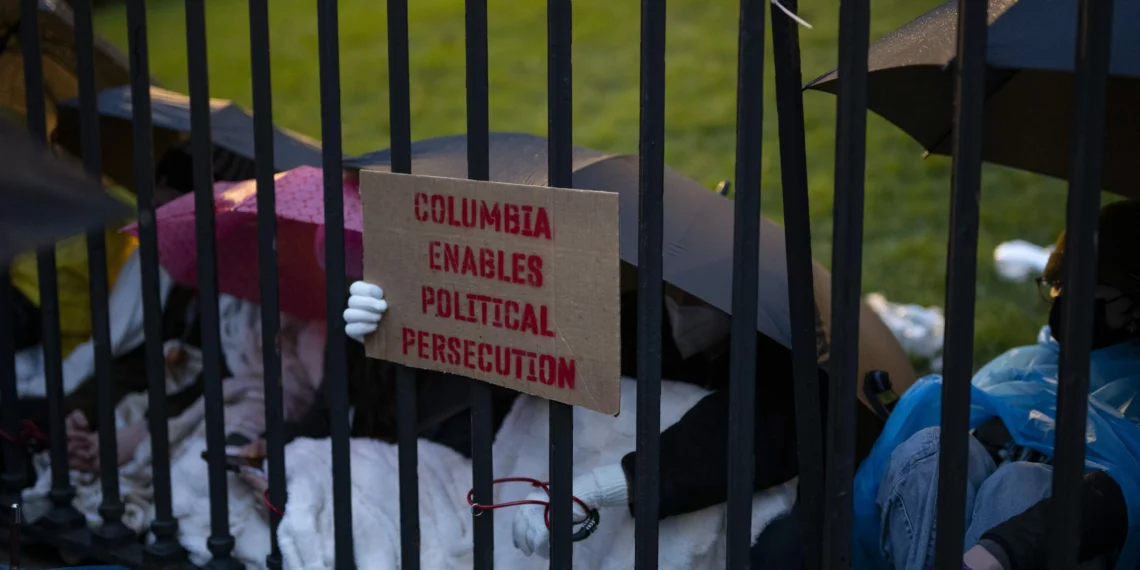Over the past few years, the Middle East has been a hot topic in the political arena, with tensions rising and conflicts escalating. And in the midst of all this, Columbia University has been a shining beacon of academic excellence and diversity, particularly in its Middle Eastern studies department. But recent events have cast a dark shadow over this renowned institution, as it seems that the university has thrown its own scholars to the wolves in order to appease the current administration.
It all started when President Donald Trump issued his executive order banning travel from several Muslim-majority countries. This sparked outrage and protests across the country, including at Columbia University. As a response, the university issued a statement reassuring its students and faculty that it would do everything in its power to protect them and uphold their academic freedom.
But behind the scenes, the reality was quite different. The university was facing pressure from the Trump administration to comply with the travel ban, and it seemed that they were willing to sacrifice their own scholars in order to maintain their relationship with the government. It was a classic case of betraying one’s own principles for the sake of political expediency.
The Middle Eastern studies department, which has long been a hub of academic excellence and groundbreaking research, was at the forefront of this betrayal. Many of the department’s scholars and students were affected by the travel ban, unable to return to the US or visit their families abroad. And instead of standing by their side, the university chose to distance themselves and even restrict their access to resources and funding.
This betrayal has not gone unnoticed by the scholars in the department. In an article published by The Intercept, several professors expressed their disappointment and frustration with the university’s actions. One professor, who wished to remain anonymous, stated, “We were promised support and protection, but when it came down to it, the university threw us under the bus to appease the Trump administration.”
This sentiment was echoed by many others, who feel that the university has not only failed to uphold its principles, but has also jeopardized the safety and well-being of its own scholars. It is a sad reality that in the current political climate, academic institutions are forced to make compromises and sacrifices in order to maintain their relationships with the government.
But what is even more disheartening is the fact that this betrayal goes against everything that Columbia University stands for. As an institution of higher learning, it has always prided itself on promoting diversity, inclusivity, and freedom of thought. And yet, in this crucial moment, it has failed to live up to its own values.
This betrayal has also had a significant impact on the department’s ability to carry out its research and academic pursuits. With limited access to resources and funding, many scholars have had to put their projects on hold, hindering their progress and potentially damaging their careers. And this is not just a loss for the scholars themselves, but for the entire academic community.
It is time for Columbia University to take a stand and stand by its scholars. It cannot continue to prioritize its political relationships over the well-being and academic freedom of its own faculty and students. As a leading academic institution, it has a responsibility to set an example and uphold its values, even in the face of political pressure.
In conclusion, Columbia University’s betrayal of its Middle Eastern studies department is a stark reminder of the challenges facing academic institutions in today’s political climate. But it is also a call to action, for the university to re-evaluate its priorities and stand by its scholars. Only then can it truly fulfill its mission of promoting knowledge and understanding of the world, regardless of political agendas.







